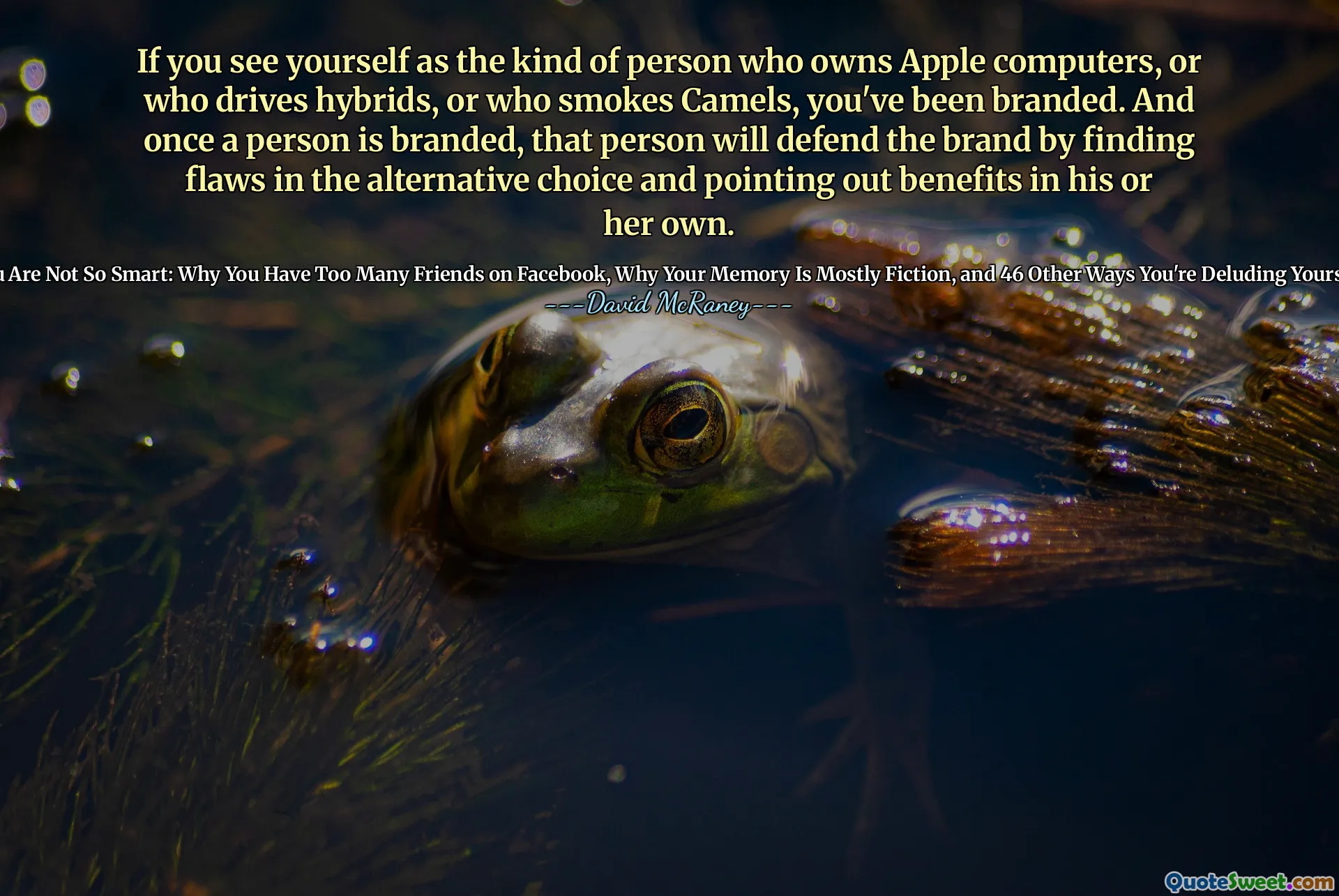
If you see yourself as the kind of person who owns Apple computers, or who drives hybrids, or who smokes Camels, you've been branded. And once a person is branded, that person will defend the brand by finding flaws in the alternative choice and pointing out benefits in his or her own.
This quote highlights a psychological phenomenon known as 'brand loyalty' and the broader concept of identity signaling through consumer choices. When individuals internalize a certain brand or lifestyle as part of their self-image, they tend to become defensively protective of it. This defense mechanism manifests in the tendency to devalue competing options, often by finding fault in alternatives and emphasizing the perceived benefits of their preferred choice. Such behaviors are rooted in the human desire for consistency and to bolster one’s self-concept — we want to see ourselves as consistent consumers and aligned with particular values. Interestingly, this extends beyond mere purchasing; it influences social identity, political views, and belief systems. Once someone commits to a brand or identity, their cognitive biases inclining them to confirm their choices often lead to resistance against change. Recognizing this from a psychological standpoint can help us better understand conflicts, social divisions, and our own decision-making processes. It underscores the importance of humility and openness, reminding us that many biases are subconscious and driven by deep-seated needs for belonging and self-affirmation. Being aware of these tendencies allows us to approach differences with more empathy and less defensiveness, fostering healthier dialogues and self-awareness. Such insights can empower us to question our attachments and consider broader perspectives rather than uncritically defending our established 'brands'—whether they are products, ideas, or identities.






